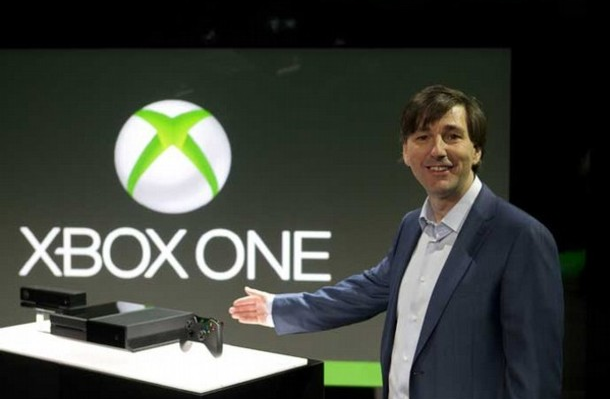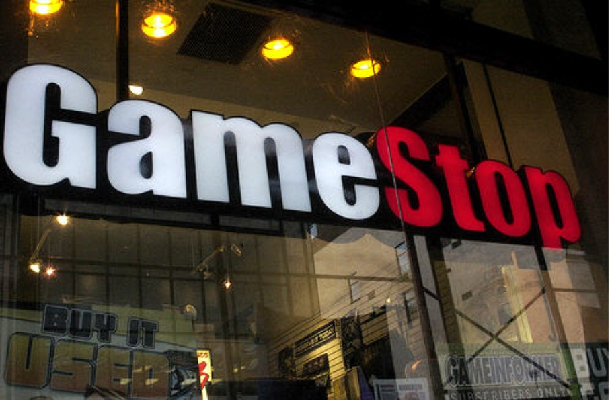Xbox One and Second Hand Games: What’s The Big Deal?
E3 is only one week away and that means one thing: More PS4 and Xbox One details. Or at least, one would hope that more details are on the way. But judging by Microsoft’s contradictory statements and Sony’s radio silence, it’s truly difficult to predict whether we’ll learn more about the consoles themselves or if we’ll be treated to more footage of CGI dogs.
Jokes aside, the run up to E3 and the juicy Xbox One and PS4 details that lie within has been overshadowed by the colossus elephant in the room: the future of second hand games.
Even before Sony announced the PS4 there had been myriad rumours suggesting that both next-gen consoles would actively block the use of second hand games. Console manufacturers and video game publishers clearly see used game sales as a threat to their business. The vast majority of consumers, on the other hand, feel that the implementation of anti-used game technologies will not only make gaming an unaffordable hobby, but vilifies them in the eyes of the very companies to which they offer their custom.
But what’s the big deal? Why does it really matter if people play used games or not? And will blocking peoples’ access to used games really make a long term impact on the video game industry? Stay with Geek Insider and all will be revealed.
Xbox One and PS4: The Facts
Just to clarify, Sony have officially stated that the PS4 will not have any built-in restrictions on the use of second hand games nor will it require a constant internet connection to function. Microsoft, on the other hand, have been less than forthcoming with regards to the Xbox One and second hand games.
Siphon off the contradictory statements made by Microsoft representatives however, and three aspects of the Xbox One keep rising to the surface: The Xbox One requires connection to the internet once every 24 hours, Xbox One games must be installed onto the hard drive, and transferring a game license from one Xbox Live account to another (i.e. activating a second hand game) will incur a fee.
Retail Games: Where Does Your Money Go?
As someone who has taken full advantage of the second hand games market for most of their life, I am deeply concerned about even the possibility of a console that blocks used games. Of course, that concern comes from Michael Westgarth the consumer. The big picture is much more complicated.
The money made from the sale of a retail video game goes to numerous different places. First off there’s tax. In the UK, value added tax (VAT) currently stands at 20% and is included in the price of a product or service, but this obviously differs between countries and territories.
The money left over after tax deduction is split between the retailer and the game publisher. Depending on the deal struck up between the two parties, the actual split can vary, but in most cases the publisher walks away with the greatest share of the money. Even so, there’s always about 25-30% of the cost of the game that goes to costs of goods sold (COGS).
In terms of retail video games, COGS is the money spent on manufacturing, shipping, marketing and the fee set by the console manufacturer i.e. if a third-party game is released on the Xbox 360, a percentage of each sale goes directly to Microsoft.
Whenever a second hand game is purchased, however, 100% of the money made from that sale goes directly to the retailer. With this in mind, it’s no surprise that big retailers such as GameStop, EB Games and CeX push the sales of second hand games over new ones, so much so that big video game publishers are getting nervous. These publishers want a piece of the pie. They want more of that money. They want to block the use of second hand games.
Notice how we’ve yet to discuss the developers, the very people that create the games, the artists without whom there would be no games. Where do they fit in?
Blocking Second Hand Games: Do Developers Really Benefit?
Obviously, when talking about a first-party game, the developers involved are on the publisher’s payroll. Bonuses can be awarded for good performance or for reaching a target ahead of schedule, but the development teams themselves don’t tend to take an actual cut of a game’s sale at retail.
Third-party developers, however, get what they’re given. Before a project is undertaken, a development studio will sign a contract with a publisher that will state various targets that need to be met, which can include units sold at launch, total units sold, adherence to a pre-determined release date and so on. Most publishers will provide a development studio a budget at the start of the development cycle which is topped up once developmental targets are met. But again, how much of the money made from a game’s sale at retail goes to the developers?
Depending on the deal that’s made, the the developers cut can differ. In some cases a set percentage of each sale goes directly to the developer, and in others they’re awarded a percentage of the publisher’s cut after costs are deducted. Although the stipulations of a contract can differ depending on the reputation of a developer, their cut will hardly ever be more than 10%, and in most cases is 3% or less. In an interview with Eurogamer back in 2011, Andy Payne of Mastertronic explains how poor sales can even result in developers getting no royalties at all.
If the product never sells more than it takes to recoup the development budget, there are no royalties paid because all those royalties are going back towards what the publisher funded in the first place.
Everybody thinks everyone else is making money out of them. Everyone. There are a lot of pockets there to fill. It’s little bits and pieces. People think it’s outrageous because they don’t understand what else is in the value chain. There’s not much else at retail you can do to cut links out of that chain.
“There are a lot of pockets there to fill”
A very loose comparison can be made between the video game industry and the book publishing industry. Even the most famous authors will receive only a small amount of each book sold, with the rest on the money made from a sale going to the publisher and the aforementioned COGS. I once met a relatively successful children’s author who told me he gets a mere seven pence for each book sold.
In most cases a book is written by one author working from home. But a video game is often developed by a team of people working in an office. If a publisher gives the developer a percentage of a game’s price at retail, that money then has to be split between the individual staff members and will also go towards the renting of office space, computer equipment, console development kits and more. A publisher’s advances may cover these costs, if they decide to give them, but there’s no guarantee.
Microsoft: Looking Out For Number One
When boiling the situation down to the raw figures, it becomes clear that the video game publishers’ concerns over used game sales do not stem from a fear of unpaid developers and does not stem from an appreciation of their customers. Video game publishers are in fact only concerned about cranking up that percentage and stuffing their pockets with as much cash as possible. How else could it be that a “AAA” retail game development team can make less money than a small team of indie developers releasing their games digitally?
The video game industry is in a state of decline. Bloated development costs, outrageous marketing budgets and over estimated unit sales are crippling the AAA game industry from the inside. These greedy, money-grabbing publishers simply use second hand game sales as a scapegoat to divert attention away from their own, broken business practices.
Of course, the money made from a second hand game sale does not go towards the developers, the actual game creators, but developers don’t profit all that much from new games sales at retail anyway. It’s my opinion that the future of gaming lies in digital distribution and systems like the Humble Bundle and Indie Royale that give consumers the power to pay what they want and put money directly into the hands of the developers.
Microsoft Just Don’t Care About You
If Microsoft do decide to implement Xbox One technologies that block the use of second hand games then it will only go to show just how out of touch they are with the needs and wants of consumers and developers. Simply put, Microsoft just don’t care about the future of the video game industry and all those who enjoy it.
Or do they? Let us know your thoughts by dropping a comment below.



